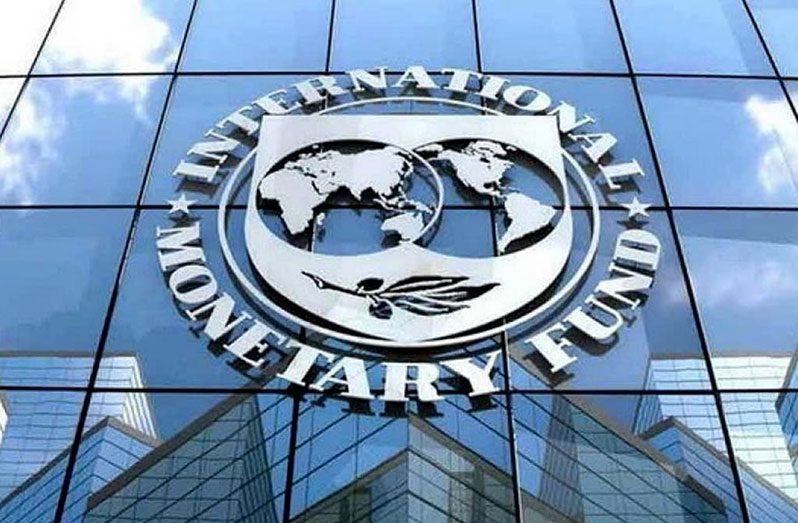–cites increase in disposable income, reduction in poverty rate
–points to highly favourable economic outlook, strong pace of transformation
THE International Monetary Fund (IMF) has praised the government’s social transfer policies that have resulted in increased disposable income and a reduction in Guyana’s poverty rate.
“Staff assesses that social transfer policies implemented in recent years have increased disposable income and reduced the poverty rate,” the IMF’s 2025 Article IV Mission noted in its concluding statement which was released on Friday.
Since assuming office in 2020, the People’s Progressive Party/Civic (PPP/C) Government has invested heavily in the social welfare of Guyanese, while also building out the country’s infrastructural landscape to enable long-term growth and sustained development.
Among the plethora of measures are the re-introduction and increase of the education grant to $55,000 per child; the increase in old-age pension to $41,000; increase in public assistance; targeted cash transfers, including the ongoing $100,000 cash grant initiative, and the grant for persons living with disabilities; health vouchers and programmes; and the removal and reduction of taxes, along with other targeted tax-deduction measures.
President Dr. Irfaan Ali, while previously referencing the investments geared at enhancing the lives of all Guyanese, had said: “This is how the resources and revenues of this country is being spent every single day; to uplift the lives of people, to expand national wealth, to expand personal wealth, to expand community wealth. This is what the People’s Progressive Party/ Civic government is all about.”
These measures, he noted, are real policies and actions taken by the government to bring relief to citizens.
“We don’t demonstrate our love and commitment to people by noise; we demonstrate our love and commitment to people by real action; real policy, real intervention,” he added.
The IMF, as part of its advice to the government, said: “Going forward, additional targeted transfers, integrated into a medium-term fiscal framework, could further support inclusive growth, and help Guyana advance faster towards its sustainable development goal (SDG) of no poverty.”
The government’s financial framework and mechanisms for funding these initiatives were also commended by the IMF.
“Staff commends the authorities’ continued commitment to maintaining macroeconomic stability, ensuring fiscal sustainability, and fostering inclusive growth. While there are no clear signs of overheating, enhancing the close monitoring of macroeconomic developments and continuing to proactively respond through tighter policies would be essential to ensure that the economy avoids overheating and remains on a balanced expansion path.
Early in 2024, the Natural Resource Fund (NRF) withdrawal ceiling was increased, creating space for a significant increase in capital expenditure, which in 2024 accounted for more than 12.5 per cent of GDP.
To ensure intergenerational equity and maintain fiscal and macroeconomic sustainability, it was suggested that the overall fiscal deficit be gradually closed by 2031, followed by a reduction in the non-oil primary deficit over the (conservatively) projected lifespan of oil reserves.
“Given Guyana’s development and investment needs, the fiscal policy stance is appropriate at this stage, and the fiscal deficits should gradually close over the medium term,” the IMF said.
While acknowledging the country’s efforts to modernise its public financial management systems, the IMF advised: “Implementing a comprehensive medium-term fiscal framework with an explicit anchor and an operational target, further modernising public financial management systems, and conducting regular expenditure reviews to continually assess spending efficiency and effectiveness in reaching the SDGs will also help further strengthen fiscal discipline and transparency.”
Despite significant investments, owing to prudent management by the PPP/C government, the total Public and Publicly Guaranteed (PPG) debt-to-GDP ratio has been reduced from 47.4 per cent at the end of 2020 to 24.3 per cent at the end of 2024.
The government has constantly stressed the importance of prudent financial management, noting that it is focused on sustainable development rather than short-term gains.
The overall progress of the country was acknowledged by the IMF, which stated: “Guyana’s economic transformation is advancing at a strong pace and broadening in scale. Rapidly-expanding oil production, strong non-oil output, and large-scale public infrastructure investment supported the highest real GDP growth rate in the world, at a recorded average of 47 per cent in 2022–24.
“The non-oil economy continues to reflect a solid broad-based performance across sectors, especially construction and services. Real GDP and real non-oil GDP are projected to grow by about 10¼ per cent and 13 per cent in 2025, respectively.”
The IMF further noted: “The medium-term economic outlook remains highly favourable with balanced risks. The economy is expected to grow on average 14 per cent per year over the next five years, driven by robust oil production amid a growing share of the non-oil sector. Non-oil GDP is projected to expand on average by about 6¾ per cent per year. Risks to the outlook are broadly balanced.
“On the upside, further oil discoveries and productivity-enhancing investments, including to strengthen energy resilience would further bolster Guyana’s economic prospects.”
Guyana was, however, cautioned that downside risks stem from overheating pressures which, if not contained, could lead to higher inflation and real exchange rate appreciation beyond the level consistent with a balanced expansion of the economy. Commodity price volatility in a highly uncertain global environment and climate shocks could also adversely affect inflation, and alter the macroeconomic outlook.



.jpg)








